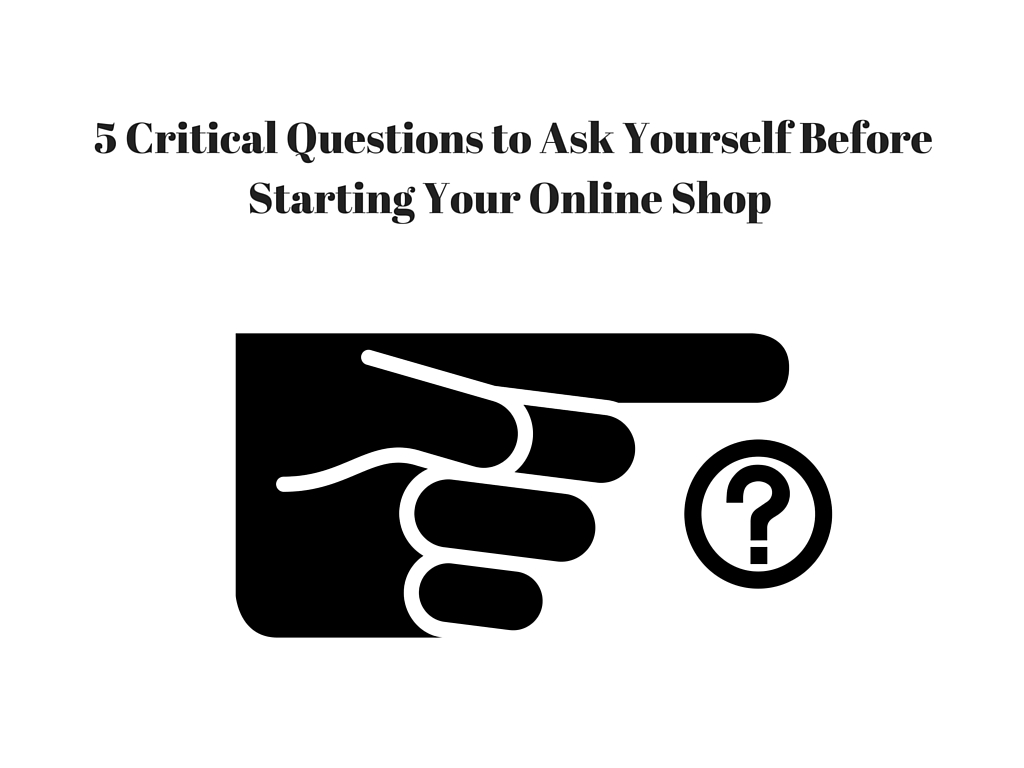5 Critical Questions to Ask When Create an Online Shop
Many budding entrepreneurs kickstart their small business ventures in the digital sphere by creating an online store. But to create online shop from scratch can be a daunting task. To set up a successful eCommerce site, you need to think about functionality, design, security and promotions—and all of these can cost you a great deal of time and money.
Today, you don’t need to throw away thousands of hard-earned money to hire a computer programmer to help you set up your website. Fortunately, small business owners can now create an online shop for a low monthly fee. And if you look further, you may even find eCommerce solutions that are offered free trial with the basic functionalities you need to get started with your online store.
Before starting your online store, here are some of the most critical questions you need to ask yourself.
1. How can I start building my online store?
There are several eCommerce vendors that offer one-stop solutions for a custom online shop. You can create an online shop quickly, without the hassle of hard coding, hosting and server maintenance. Some of these providers allow you to design the overall look and functionality of your eCommerce site, where you can upload your complete product catalog and install shopping carts as well as payment and order fulfillment systems.
These types of eCommerce services typically require you to do a simple set-up work. For instance, some services will let you choose a layout from a set of templates, customize your color scheme and fonts, upload your shop logo and edit the sizes of your product images.
Prices may range from $70 to $700 to be billed on a monthly basis, which depends on the number of products you want to sell and the types of services you require. Other providers offer eCommerce solutions for free, which usually comes with the basic functionalities you need. You can start with these free offerings during the first stages of your business operations, and upgrade to premium services as your business grows.
2. How can I incorporate customer service into my online store?
Most major eCommerce vendors offer access to a CRM (customer relationship management) tool, usually with an added fee of about $25 to $80 every month. A CRM system streamlines your customer data in one central place, which includes contact information, purchase records, pending orders and complaints. You can also set up a live chat support system in your online shop as another option.
3. How do I define shipping costs?
When you create an online shop, remember that you will be dealing with shipping costs frequently. You need to coordinate shipping matters with the carrier you use. Some carriers offer to calculate your shipping costs for free, and you can integrate shipping costs into your online store’s checkout page.
If you can afford it, you can also explore a “free shipping” offering for orders that reach a certain amount. This can be an added marketing strategy for your online store.
4. Should I provide a feedback system?
Allowing your customers to comment on your products and services can boost their confidence in your online store. Good reviews and social media shares can also improve your store’s reputation and eventually increase sales.
However, customer feedback can go two ways; there’s also the risk of getting negative comments. Most eCommerce services allow online shop owners to review customer comments and either responds to good feedback and removes negative ones.
5. How do I market my online store?
To create an online shop is in itself a demanding task. To attract shoppers can be more challenging. Good thing social media platforms are making it easy for online shop owners to market their products and services. Create a Facebook, Twitter, Pinterest, Instagram and YouTube accounts for your online business and uses these accounts to post daily deals in your shop and other promotions. You can also explore SEO (search engine optimization) options from your eCommerce vendor. This can give your store a higher ranking in Google or Yahoo.







